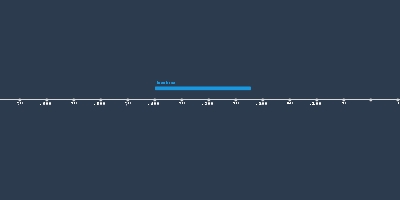Visconti (2 gen 1277 anni – 1 gen 1447 anni)
Descrizione:
The Visconti family gained power in Milan following the Battle of Desio, ousting the Della Torres from Milan in 1277 with Ottone Visconti having already been named archbishop through the Ghibelline preference of the Holy Roman Emperors.Ottone initially granted power in Milan to Simone Orelli, naming his Captain of the People, but in 1287 he transferred this role to his grandnephew Matteo, and upon Ottone's death in 1295 Matteo became Lord of Milan. the Della Torre retook power in 1302, forcing Matteo out of the city, though Henry VII of Luxembourg would appease the families' dispute in 1310 and restore Matteo's lordship, after which 4 generations of Visconti's following Matteo would rule Milan. Matteo would rule for 11 years, providing legal basis for hereditary lordship of Milan and extending territory of Milan influence against the Papacy's Della Torre and Anjou dynasties.
Matteo's son Galeazzo in 1322 succeeded him, who was soon succeeded by his son Azzone in 1329 on his death. Matteo's cousin Lodrisio once attempted to revert the line of succession to his own family, but was defeated by Azzone's army. Azzone died without heirs in 1339, and the line power passed to his uncles Luchino and Giovanni. Their deceased brother Stefano's sons, Matteo II, Bernabó, and Galeazzo II were suspected of a conspiracy against Luchino and left Milan. Milan passed to solely Giovanni on Luchino's death in 1349, and after Giovanni's death in 1354, Stefano's sons, who agreed to share power and divide geographic domains, though Matteo II would die in 1355 and they would redivide.
Bernabó and Galeazzo II would settle hold courts in Milan and Pavia respectively, and through their childrens' marriages, would extend Visconti relationships to other European dynasties. Bernabó had 15 children, while when Galeazzo II died in 1378 his son Gian Galeazzo was his sole heir. Bernabó assumed a leading role towards him, and was bad-tempered and had a regime of terror compared to relatively mild Gian Galeazzo, and their relationship progressively deteriorated. After his wife's death, in 1385 Bernabó was deposed by his nephew in a well-prepared coup, and the people of Bernabó's domains promptly submitted to Gian Galeazzo, tired of a ruthless regime. Bernabó soon died, allegedly poisoned.
Gian Galeazzo paid Holy Roman Emperor Weneceslaus IV of Bohemia to raise Milan to the dignity of a duchy in 1395. Visconti territory reached its largest extent under him, and he died in 1402 of disease.
His two sons were 12 and 10, and his wife Caterina became regent. The elder, Giovanni Maria, became new Duke in 1404, and induced his mother to leave Milan under the influence of her enemies, and she soon died under mysterious circumstances. The political crisis deteriorated and fragmentation of the territorial unity began to occur, only ending when a powerful general died in 1412, shortly followed by an assassination on Giovanni Maria. His brother Filippo Maria married in general's wife Beatrice of Tenda, helping the reunification. Filippo never had sons, but had an illegitimate daughter, Bianca Maria, whom he considered his only heir. She married Francesco Sforza, granting him the succession of the Duchy of Milan. In 1447, Duke Filippo Maria Visconti died without a male heir, ending the Visconti line, leading to the creation of the Ambrosian Republic, though Francesco Sforza would become the new Duke of Milan in 1450, initiating a new dynasty.
Aggiunto al nastro di tempo:
Data:
2 gen 1277 anni
1 gen 1447 anni
~ 170 years
